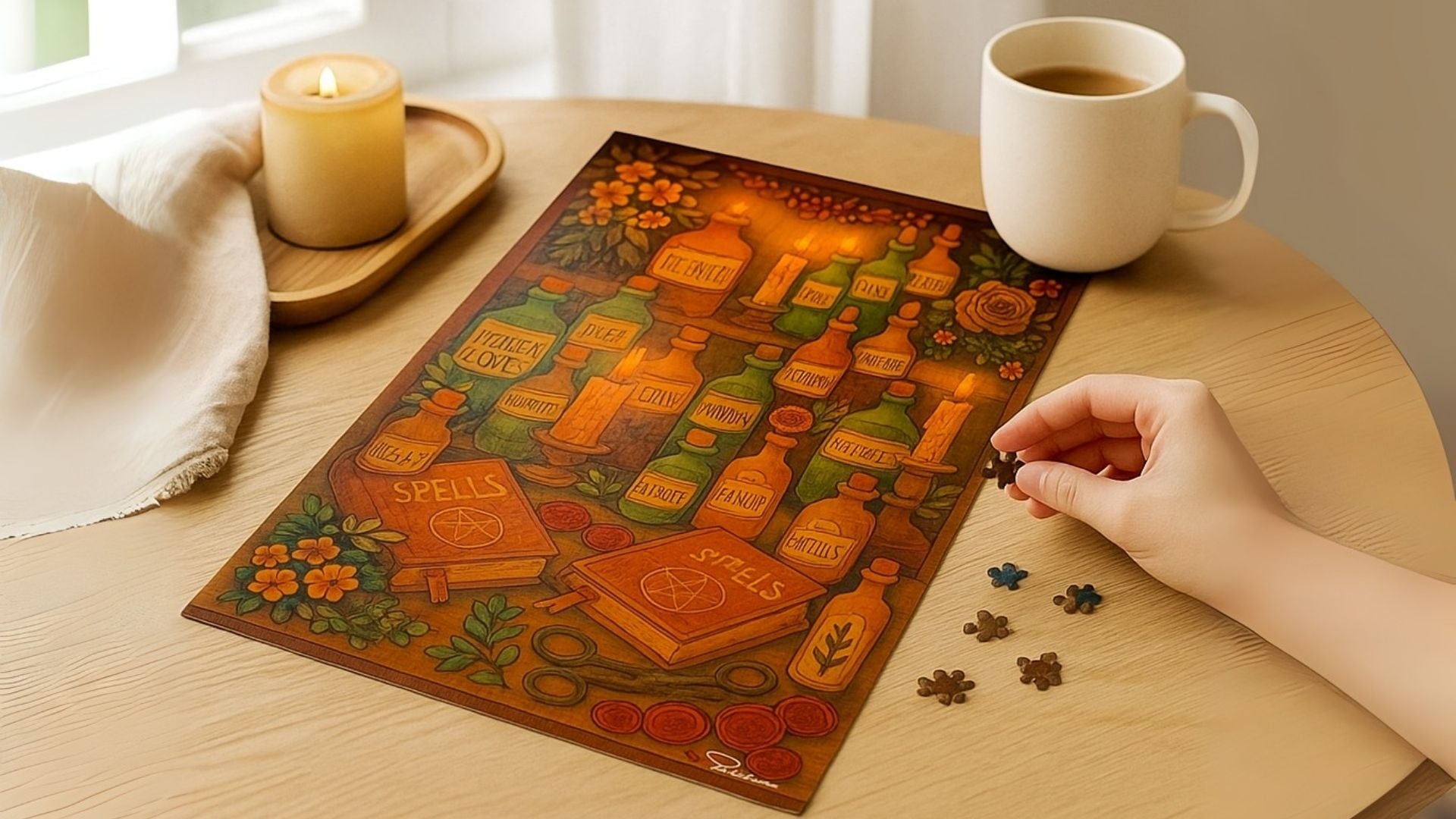Why Repetition Soothes the Mind: The Psychology of Puzzles
The clink of a puzzle piece finding its place. The slow scan of your eyes across a sea of muted colors. The hush that fills the room—not silence exactly, but something calmer. In a world that demands speed, puzzles offer a rare permission: to slow down, repeat, and feel at ease.
Why does repetition feel so good? Especially when it comes to something as simple as a jigsaw puzzle? It turns out, the answer lies deep within the psychology of how our minds process stress.
Discover the therapeutic side of puzzling: Shop our jigsaw puzzle collection
Repetition Creates Predictability in an Unpredictable World
According to experts in cognitive behavioral therapy, repetitive actions like sorting, scanning, and clicking puzzle pieces together help the brain shift into a relaxed, regulated state. Repetition offers a sense of control, which is especially important when daily life feels chaotic or emotionally overwhelming.
This concept is tied to something called perceptual fluency—the ease with which our brains process familiar patterns. When you engage in a repetitive activity, your brain gets to rest while staying gently focused. It’s a form of mindfulness without needing meditation.
Puzzling Can Ground You During Emotional Overwhelm
The act of working on a puzzle is both structured and open-ended. It has a goal, but no pressure. There’s no urgency. No performance. That space—where you can move slowly, sort by color, trace lines with your fingers—mirrors the rhythm of regulated breathing or quiet walking.
The Duskwood Puzzle was created specifically for moments like this. A shadowed garden at the edge of day. Hidden creatures, overgrown paths, and forgotten symbols. It’s immersive, rich with layers, and designed to slow your eyes down.
When you work on a puzzle like Duskwood, you’re not escaping your stress—you’re soothing it. You’re allowing your nervous system to shift into what psychologists call a "safe state." This is where healing and calm live.
Let the pieces become your ritual. Explore calming puzzles here.
Repetition Reinforces Focus and Quiet Satisfaction
In an article from Psychology Today, neuroscientist Christopher Bergland explains that repeated actions—especially those done rhythmically—boost dopamine, the brain’s feel-good chemical. And not in a fast, addictive way. In a slow, reinforcing way that tells your body: this is safe, you can stay here.
Puzzles aren’t just a distraction. They’re an act of quiet restoration. And the best ones aren’t always the most complex. They’re the ones that balance detail and rhythm—the kind that feel almost like brushing your mind with soft moss.
Why Duskwood is a Perfect Puzzle for Stress Relief
Unlike puzzles that scream for attention with neon colors or chaotic scenes, Duskwood is layered in subtle contrast: deep greens, soft plums, golden glow, and pockets of shadow. It’s busy enough to hold attention but soothing enough to never overwhelm.
Hidden within the design are small anchoring points: a lantern. A fox. A key. These become your focus cues, giving you moments of micro-satisfaction with every match.
Designed to soothe and intrigue. Try Duskwood for your next mindful moment.
FAQs About Puzzles and Stress Relief
How do puzzles help with anxiety?
Puzzles offer structured repetition, which helps the brain feel calm. They promote focus, remove pressure, and give your mind something safe to engage with.
What types of puzzles are best for relaxation?
Look for puzzles with clear contrast, gentle complexity, and visually calming imagery. Avoid overly chaotic or jarring designs.
How often should I puzzle for mental wellness?
Even 15–20 minutes a day can help. Use puzzles as part of your wind-down routine, or when you need a break from overstimulation.
Warmly,
The Cozy Corner by Durazza
Blankets | Candles | Puzzles | Journals | Pillows | Duvet Covers | Wall Art
Reference: Psychology Today. (2021). Repetition: The Neurological Secret Sauce

